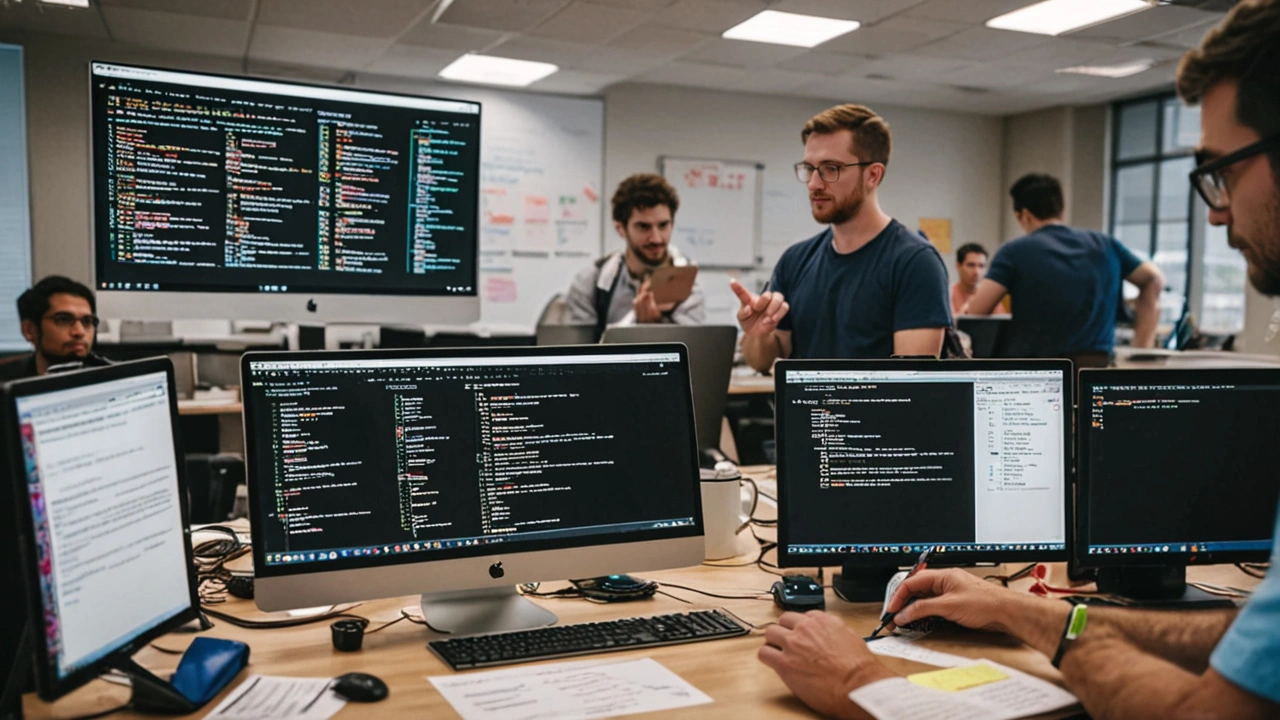Python Programming: Master Practical Skills and Stay Ahead in 2025
If you’re looking to improve your Python programming skills, you’ve come to the right place. Python isn’t just popular—it’s one of the most flexible and beginner-friendly languages out there. Whether you want to automate daily tasks or build AI models, mastering Python opens a lot of doors.
Start with Practical Coding Tips
Good coding isn’t about writing complicated code; it’s about writing clear, smart, and efficient code. For example, using Python's built-in functions and libraries can save you tons of time. Instead of reinventing the wheel, use what’s already available—this is especially true for data processing and AI projects. Also, keep your code clean and well-commented. Trust me, debugging is way easier when you can understand what you wrote a week ago.
Debugging is one area many overlook, but it’s crucial for becoming a solid Python programmer. When you hit bugs, slow down and track down the root cause—don’t just patch symptoms. Tools like PDB (Python Debugger) can help you follow your code step by step. Remember, even pros spend a good chunk of their time debugging. It’s part of mastering the craft.
Level Up with Python Tricks and AI Coding
Once you’ve got the basics, dive into clever Python tricks that boost both speed and quality. For instance, using list comprehensions can make your code shorter and more readable. Explore how to write functions that handle errors gracefully so your programs don’t just crash when something unexpected happens. These small improvements add up fast.
Python shines when it comes to AI and machine learning. Its simple syntax lets you focus on building the algorithms rather than battling the language. Libraries like TensorFlow and PyTorch make AI projects manageable, even if you’re new. Starting with small AI tasks lets you understand how data shapes outputs and trains your coding muscle in an exciting way.
Above all, keep coding regularly and try projects that push your limits. The best way to get better at Python programming is to write real programs that solve real problems—whether it’s automating your to-do list or analyzing data sets. There’s no shortcut for hands-on practice.
Ready to use Python for work, school, or your own projects? Focus on practical skills and keep an eye on emerging trends. By doing that, you won’t just learn Python—you’ll master it.

- Jul 16, 2024
- Jefferson Maddox
- 0 Comments
Python Programming Essentials: Tricks Every Developer Should Know
Learn essential Python tricks every programmer should know, from basic tips to advanced techniques. Whether you're a beginner or experienced coder, these insights will help you write efficient, clean, and powerful Python code. Explore debugging methods, code optimization, and discover hidden gems in the Python standard library.

- Jan 23, 2024
- Alfred Thompson
- 0 Comments
Advanced Python Programming Tricks: Elevating Code Efficiency in 2024
Discover the innovative Python tricks that are redefining programming efficiency and shaping the future. This article explores advanced techniques and practical tips designed to enhance code readability, performance, and maintainability. Dive into the latest Python features, optimization strategies, and expert insights to streamline your coding process and stay ahead in the ever-evolving world of technology.

- Sep 26, 2023
- Andrew Harper
- 0 Comments
Python Tricks: The Python Programmer's Essential Guide
Hi there, fellow coders! Today we're delving into some Python magic - the essential tips every programmer should have up their sleeve. Forget the drudgery of sifting through textbooks, I'll be delivering these gems in a simple, easy-to-understand manner. We'll uncover hidden shortcuts, reveal nifty tricks, and streamline your coding process. So buckle-up, this is your express route to Python mastery!
